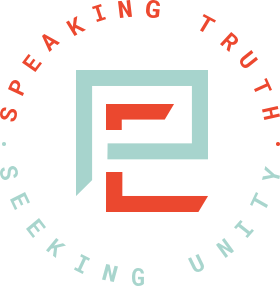Have you ever heard the term African American Vernacular English (AAVE)? This type of language, also known as Black English, Ebonics or talking with a Blaccent, is commonly associated with Black culture in the United States. In this blog post, I want to help you understand the history and impact of AAVE, and how it continues to shape the way Black Americans communicate today.
The History of AAVE
 African American Vernacular English has a complex history that is deeply rooted in the experiences of Black Americans. Many African slaves were brought to the United States and did not speak English, so they had to learn the language in whatever way they could. However, African-Americans were not allowed to learn literacy and were often relegated to the outskirts of society, leading to segregation not only in physical spaces but also in linguistic ones.
African American Vernacular English has a complex history that is deeply rooted in the experiences of Black Americans. Many African slaves were brought to the United States and did not speak English, so they had to learn the language in whatever way they could. However, African-Americans were not allowed to learn literacy and were often relegated to the outskirts of society, leading to segregation not only in physical spaces but also in linguistic ones.
Even after slavery was abolished, Black people were still discriminated against and not allowed to integrate into cities where their Caucasian American brothers and sisters lived. This segregation led to the development and maintenance of distinct linguistic differences between Black and white communities. These differences can be seen in pronunciation, grammar, tone, volume and vocabulary. For example, AAVE often uses word patterns that are a bit different from Standard American English, such as “he be workin'” instead of “he is working” or “I’m about to run” instead of “I’m getting ready to leave.”
The Impact of AAVE Today
The segregation of Black Americans and the resulting linguistic segregation has had a lasting impact on the way Black people communicate today. African American Vernacular English is still seen as a stigmatized form of language, and many people associate it with ignorance or lack of intelligence. This stereotype is often used to justify discrimination and negative treatment of Black people.
 This is especially evident in educational settings, where students who speak AAVE may be unfairly judged or punished for using it. Now, here’s something crazy, research has shown that teachers may have lower expectations for students who speak AAVE, and these students are often punished more harshly than their peers for language-related issues. Obviously, this can have serious consequences, as it can lead to lower academic achievement and higher dropout rates for Black students.
This is especially evident in educational settings, where students who speak AAVE may be unfairly judged or punished for using it. Now, here’s something crazy, research has shown that teachers may have lower expectations for students who speak AAVE, and these students are often punished more harshly than their peers for language-related issues. Obviously, this can have serious consequences, as it can lead to lower academic achievement and higher dropout rates for Black students.
Unfortunately, the stigmatization of AAVE is just one aspect of the ongoing systemic issues that Black Americans face. For example, by the fourth grade, only 19% of African-American children are able to read and write at a fourth grade level. This highlights the fact that literacy is still a major problem in the Black community, and it is directly related to the segregation and discrimination that Black Americans have faced for centuries.
By the fourth grade, only 19% of African-American children are able to read and write at a fourth grade level.
I want you to know that African American Vernacular English is a unique and important part of Black culture and history. It is a reflection of the experiences and struggles of Black Americans and should be celebrated and respected as such.
However, it is also important to recognize the ongoing impact of segregation and discrimination on the Black community, and the role that these systemic issues play in perpetuating linguistic and educational disparities. By acknowledging and addressing these issues, I believe that we can work towards a more inclusive and understanding society that embraces diversity in all forms.


